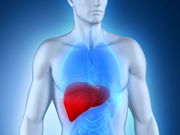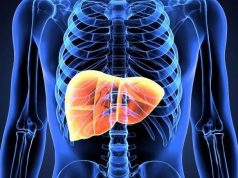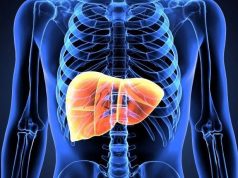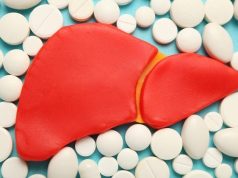Impact of genetic variants on liver damage proportional to effect on hepatic fat accumulation
THURSDAY, Jan. 11, 2018 (HealthDay News) — Hepatic fat accumulation may play a causal role in chronic liver disease, according to a study published online Dec. 27 in the Journal of Internal Medicine.
Paola Dongiovanni, from the Fondazione IRCCS Ca’ Granda Ospedale Policlinico Milano in Italy, and colleagues examined whether the accumulation of hepatic fat has a causal role in determining liver damage and insulin resistance. A Mendelian randomization analysis was performed using risk alleles and a polygenic risk score for hepatic fat. Complementary cohorts of at-risk individuals and individuals from the general population were assessed: 1,515 from the liver biopsy cohort (LBC), 3,329 from the Swedish Obese Subjects Study (SOS), and 4,570 from the Dallas Heart Study.
The researchers found that there was an epidemiologic correlation for hepatic fat with liver damage, insulin resistance, dyslipidemia, and hypertension. The effect of genetic variants on liver damage was proportional to their impact on the accumulation of hepatic fat. In the LBC, genetically determined hepatic fat was correlated with aminotransferase and with inflammation, ballooning, and fibrosis. The causal correlation between hepatic fat and fibrosis was independent of disease activity in the LBC. In the LBC and SOS, genetically determined hepatic steatosis was correlated with insulin resistance; the correlation depended on the severity of liver damage.
“These data suggest that long-term hepatic fat accumulation plays a causal role in the development of chronic liver disease,” the authors write.
One author disclosed financial ties to the pharmaceutical industry.
Copyright © 2018 HealthDay. All rights reserved.








